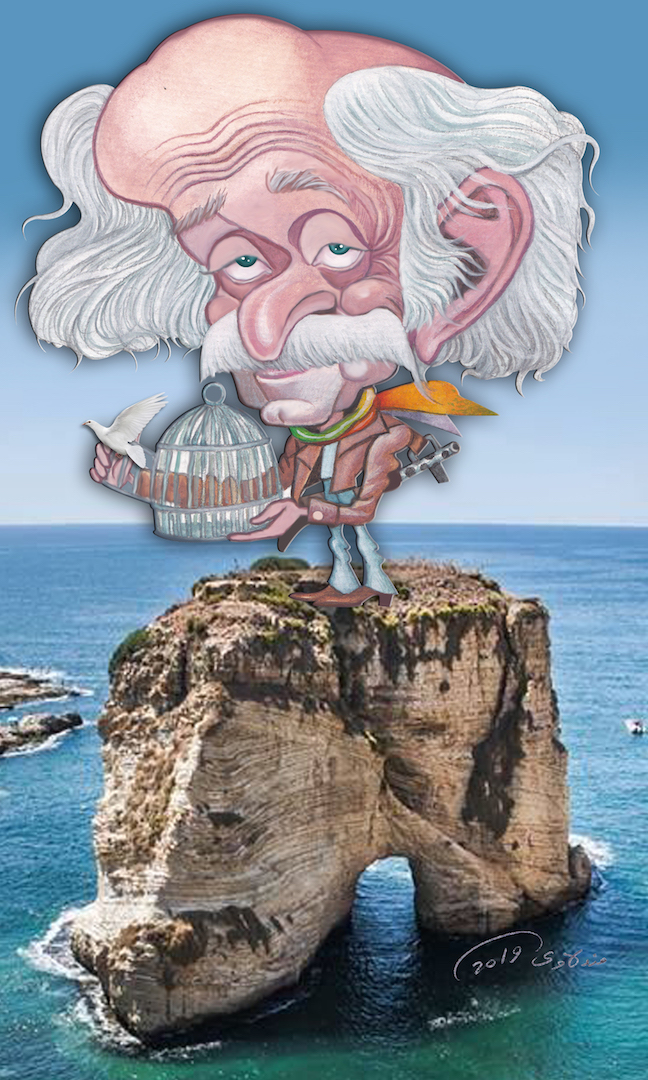-
A Wonderful Birthday Gift
Walid Jumblatt was born to Kemal Jumblatt and Mai Shkeeb Arslan on August 7, 1949, in the Chouf district of Lebanon. Walid turned out to be a wonderful birthday gift as his birth coincided with his mother’s 21
st birthday.
-
Diverse Familial Background
Walid grew up in a household teeming with diverse talents and careers. His mother Mai was passionate about art, culture and music and she was also an educated woman who attended the Lycee school and continued her education in France. His maternal grandfather was political reformist and anti-colonial writer Chakib Arslan. His father Kemal was a political leader and founder of the Progressive Socialist Party, and he remained its leader until his murder in 1977 during the Lebanese Civil War.
-
Marriage and Children
In 1981, he married Gervette Jumblatt, a Jordanian- Circassian woman and together they had three children, Taymor (born in 1981), Aslan (born in 1983) and Dalia (born in 1986). He eventually divorced Gervette and is currently married to Nora El Sharbaty, the daughter of former Syrian Defence Minister Ahmed El Sharbaty, who now goes by Nora Jumblatt.
-
Education and Early Career
Jumblatt obtained a bachelor’s degree in Political Science from the American University of Beirut in 1973. Jumblatt then studied history at the Aley National University. He then went on to write for the Al Nahar newspaper for a year where he wrote many political and economic articles. Then between 1979 and 1980, he worked for the pro-Progressive Socialist Party’s “Al Anba’a” newspaper.
-
Going Into the Family Business
On April 29, 1977, Wallid was elected to succeed his late father as the new leader of the Progressive Socialist Party and he has remained at this post to this day.
-
Cedar Revolution Against Syrian Occupation
Shortly after the assassination of Prime Minister Rafiq Al Hariri, Wallid launched the Cedar revolution. He was also one of the prominent leaders of the 14 March Alliance which called for Lebanon’s independence and the end of Syrian occupation.
-
Rivalry with Talal Arslan
As Talal Arslan rose to prominence as the vice-chairman of the Lebanese Democratic Party, both Druze men soon started competing for support from their community. Soon enough allies close to both men started competing for major political posts within the Lebanese government.
-
Qabrshmoun Incident
On June 30, 2019, Minister of State for Displaced Affairs Saleh al-Gharib (a close ally of Talal Arslan) and his entourage were attacked at the Qabrshmoun near Mount Lebanon. Two of Gharib’s aides were shot and killed, but the minister survived the attack. The attackers were suspected to be Jumblatt loyalists, but the Druze leader denied any involvement. Eventually, both Arslan and Jumblatt attended a reconciliatory meeting at the presidential Baabda Palace, where both men ended their potential feud.
-
A Man of Peace
Having lived through one of the most violent chapters of Lebanon’s history, Jumblatt knows to well how costly violent political clashes can become. As such, Jumblatt has often tried to find peaceful solutions to most political disputes and maintain peace to the best of his abilities.




